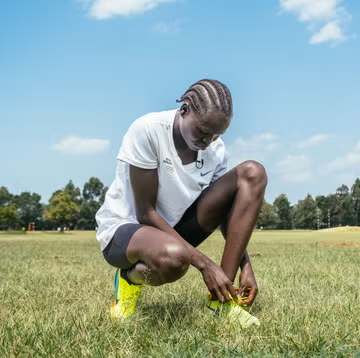Making it to the Olympics is one of the most difficult feats in the sports world. For refugee athletes, the journey there is even harder. After fleeing war-torn Syria, swimmer Yusra Mardini defied the odds and competed in both the 2016 and 2020 Olympic Games. Her inspiring story was chronicled in the 2022 Netflix documentary The Swimmers. After hanging up her swim cap last year, Mardini, 26, has dedicated her life to helping other refugee Olympians as a UNHCR, The UN Refugee Agency Goodwill Ambassador.
Ahead of the 2024 Paris Games, she sat down with South Sudan-born track star Perina Lokure Nakang, 21, who is running as a member of the Refugee Olympic Team. At the age of seven, Nakang was able to escape violence in her home country with her aunt. They wound up in the northwestern region of Kenya at the Kakuma Refugee Camp, which was established in 1992 during the second Sudanese Civil War. It is “easy to lose hope” in a refugee camp, Nakang says, but running helped take her mind off of what was happening.
After overcoming more hurdles than anyone should have to navigate in a lifetime, Nakang is now living out her dreams on the world’s biggest stage. In Paris, she will be one of 37 athletes on the refugee team competing across 12 sports—and representing more than 120 million forcibly displaced people all across the globe. In their inspiring conversation, published exclusively on ELLE.com, Nakang tells Mardini that she’s “excited to be part of a team where everyone has had similar experiences and challenges.”
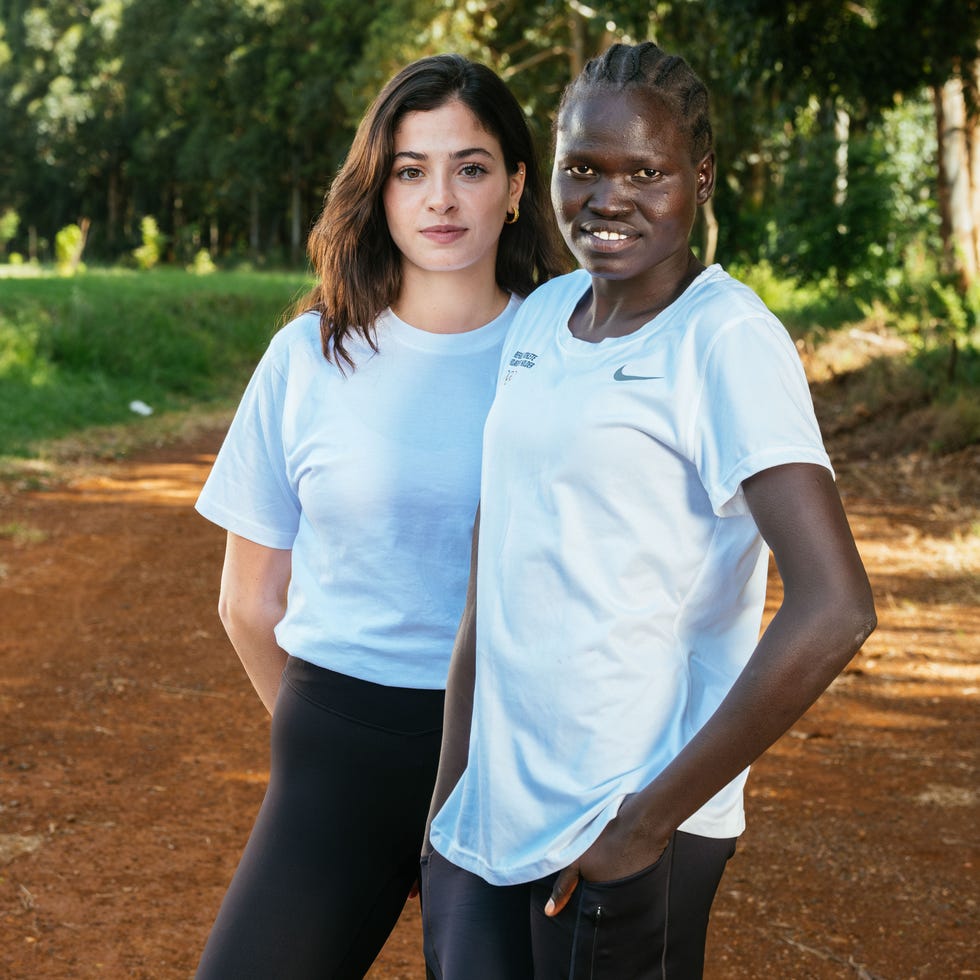 Khadija Farah
Khadija Farah
Mardini, left, visited Nakang in Kenya, where she is training for the 2024 Paris Olympics.
Advertisement – Continue Reading Below
Yusra Mardini: You must be preparing a lot for the Olympics. How are you feeling?
Perina Lokure Nakang: I’m quite nervous, as this will be my first Olympic Games and my first time in France. But I am very excited, and I know that I have a lot of support behind me. It will be an amazing experience and such an incredible opportunity to compete alongside the best athletes in the world. Not everyone gets such a chance.
Mardini: Can you tell me a little bit about your life story?
Nakang: When I was seven years old, I had to flee my home in South Sudan, because of the war. I moved to Chukudum, where it was safer, to be with my aunt. I was too young to understand what was happening. It all got a lot worse when armed men arrived and fighting broke out. My aunt decided that we had to leave. That’s when we arrived at Kakuma Refugee Camp. My mother couldn’t follow us until later. It was awful. This is the reality for so many people whose families are split up by war and conflict.
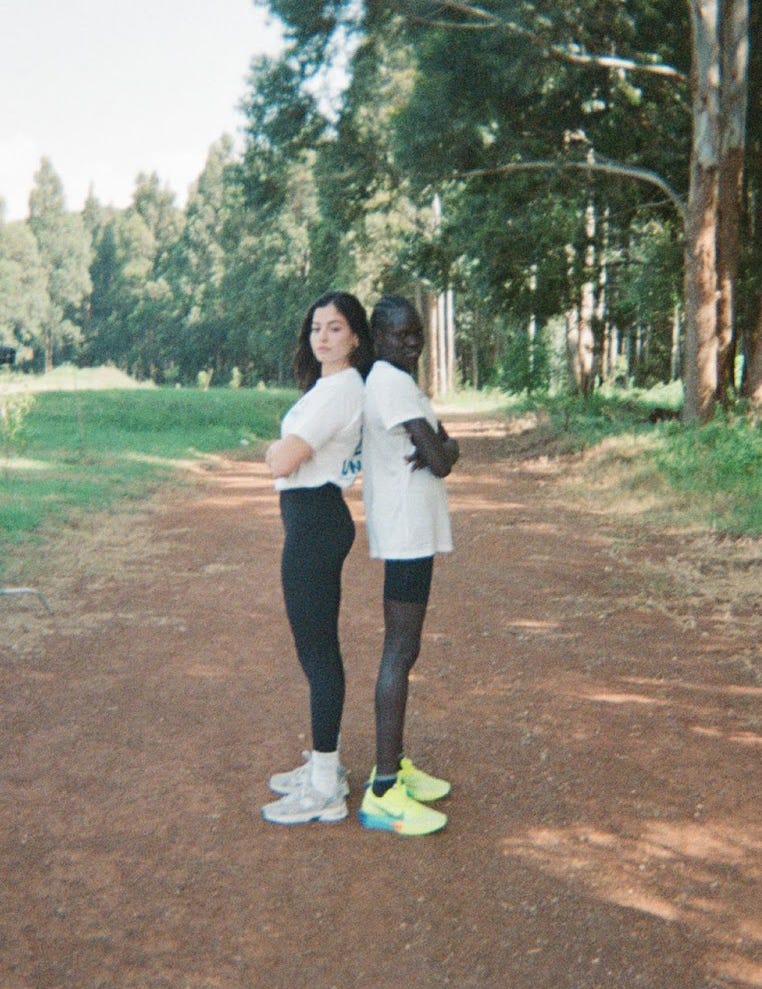 Courtesy UNHCR, the UN Refugee Agency
Courtesy UNHCR, the UN Refugee Agency
“Sports offer a positive escape from this reality—a chance to take one’s mind off the situation, and to feel a sense of normalcy,” Nakang told Mardini.
Advertisement – Continue Reading Below
Mardini: What drew you to running?
Nakang: I used to see my friends running, and I just couldn’t understand the point. I would say to them, “You’re chasing the wind!” Then my friends convinced me to take part in a couple of races at the Kalobeyei Sports Complex in Kakuma, and I won. I started doing it more frequently and discovered how much I loved it.
Mardini: I can definitely relate to that. For me, swimming offered so much—especially when I became a refugee. How have you found solace in sports?
Nakang: Living in a refugee camp can be incredibly challenging. There are many daily struggles, and days can feel long and wearying. It’s easy to lose hope. Sports offer a positive escape from this reality—a chance to take one’s mind off the situation, and to feel a sense of normalcy. Organizations like the UN Refugee Agency advocate for more sports programs in refugee camps, because it brings hope. When I started running, I suddenly had a routine and a goal to aim for. I train, because I know there are many athletes who have benefited from success in running. Take my coach, Janeth Jepkosgei, for example. She inspires me, and I’d love to be just like her.
Mardini: You’re part of the Refugee Olympic Team heading to Paris. What is that like?
Nakang: I know I will feel like a champion at this year’s Olympics. I never dreamed this would be possible. I’m excited to be part of a team where everyone has had similar experiences and challenges. I hope we can succeed and thrive as ambassadors for refugees around the world. It feels like there is a certain responsibility that comes with being part of this team. We represent refugees, over 120 million people globally, and I want to show the world that we can do anything if we are given a chance.
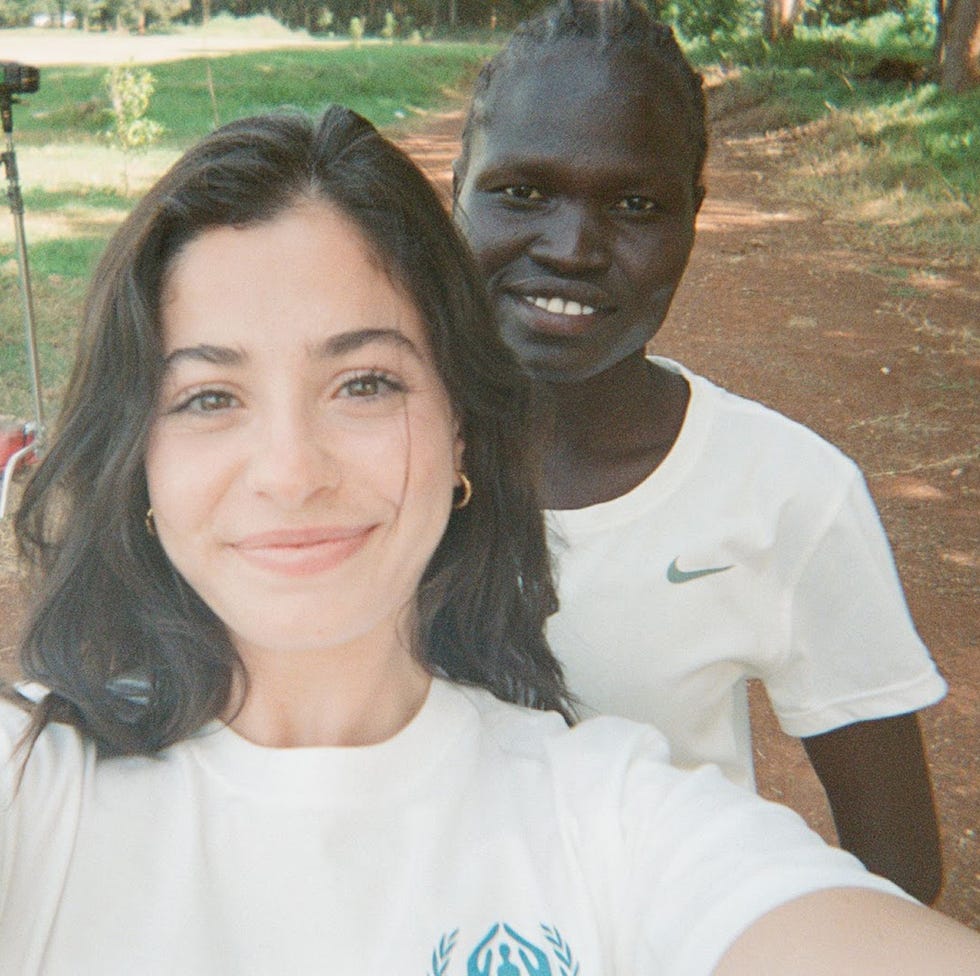 Courtesy UNHCR, the UN Refugee Agency
Courtesy UNHCR, the UN Refugee Agency
Mardini, who swam in the 2016 and 2020 Olympics, believes “getting into the right mindset” is a huge part of Olympic preparation as a refugee athlete.
Advertisement – Continue Reading Below
Mardini: I love your determination. Getting into the right mindset is a huge part of the preparation for such a large competition. How have you been preparing?
Nakang: I’ve been training at a training center in Eldoret, which is in the north of Kenya. It is at a high altitude, so many world class training camps are located there. I’m lucky, because the facilities there are so much better than in Kakuma, and I have the chance to really develop as an athlete. That said, my routine is still the same, and I’m still studying in addition to training, which is something encouraged by my coaches.
Mardini: What is your goal in Paris?
Nakang: I would love to achieve a personal best. More broadly, I aim to use my successes to transform my own future and also my family’s future. I would like to help other refugees around the world, showing them that anything is possible. I hope there are refugee girls who see me run and feel inspired.
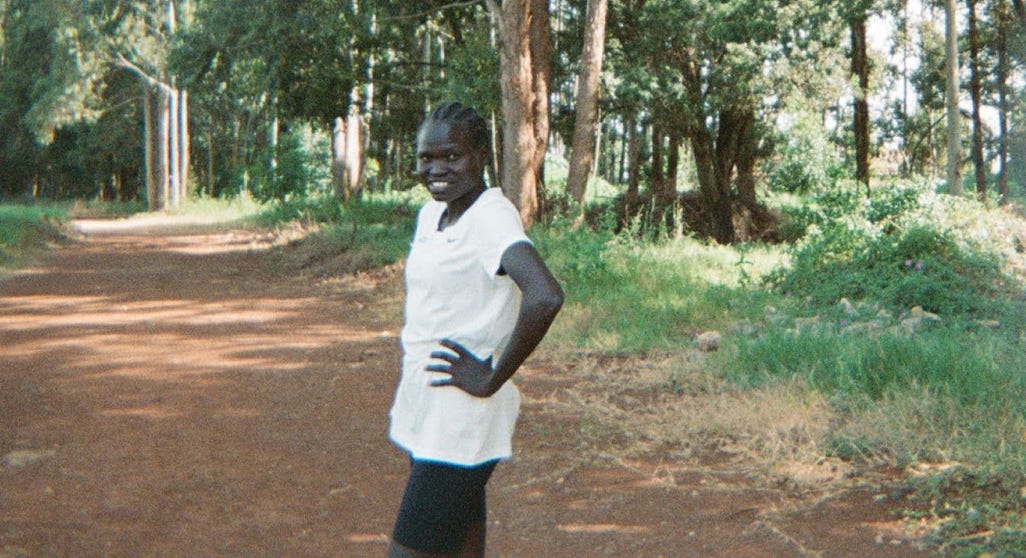 Courtesy UNHCR, the UN Refugee Agency
Courtesy UNHCR, the UN Refugee Agency
Mardini: How can readers support the Refugee Team?
Nakang: Hearing a supportive crowd makes all the difference, so please watch and cheer. You can also spread the word. Tell your friends about the team. But more than this, I think the best thing people can do is continue to have bigger conversations about access to sports and the benefits athletics brings for refugees all over the world. I know personally how much power sports has in bringing about real change in a person’s life, especially if they have been forced to flee their home. If you can support the UN Refugee Agency’s sports programs, that will really make a difference, and could potentially help people on the next Refugee Olympic Team.
Mardini: What comes next for you after the Olympics?
Nakang: I will continue with my studies and training in Kenya. I’m lucky to have those things in my life, and I want to make the most of them. My name actually translates to “hard work” in Didinga, so I hope to continue living up to that. My goal is to become a world champion, and I’m still young, so I know that the future will hold a lot of success for me. Then I can change the lives of those around me and really make a difference in the world.

